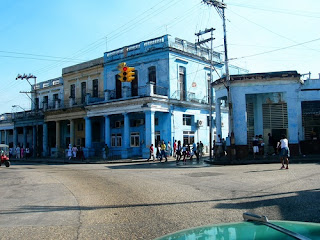Every Day Is Sunday
It was hard to imagine the city of Trinidad asleep in the middle of March.
The news about the Coronavirus seemed far away until March 11th, when the Cuban television evening news program announced that three Italian citizens, who had been staying at a casa particular in this tourist destination, became the first three confirmed cases in Cuba. Since then, the city hasn’t been the same: uncertainty, fear, and denial abounded in those first weeks.
The elderly were the first to decide to stay in their homes. On the other hand, young people went out to celebrate for one last time their final encounters with friends before the beginning of a lockdown we knew would come before long. The first private businesses —some restaurants and hostels— closed their doors because they believed that the danger had been underestimated.
“There are inconsiderate people who’ve kicked tourists out of their houses,” complained Carlos Alonso, owner of El Mago bar, who was still providing services a week later, when the cases had tripled. By March 23, Trinidad was part of a special evacuation plan to remove foreigners seen as potential sources of risk. They were sent to hotels in isolation. The next day, authorities stopped commercial flights from landing in Cuba and the cases numbered 57. People began to stay at home.
I’ve been isolated since March 22th. Even before then, I had been very careful. I opted for limited outings just to see my friends. I faced anger when I refused a kiss or a hug in greeting, as is customary here. In Cuba, human warmth is sometimes more important than life itself. I haven’t been to the bar I usually go to in order to clear my energy. The bar has been in isolation as long as I have.
It’s been nearly two months since I had a social life. All my afternoons seem like Sunday: a certain nostalgia, perhaps a melancholy. The wind blows cool like a Cuban bolero or a Portuguese fado. Indoor workouts, a biography to read, the addictive cellphone, or a blank sheet of paper to write on. This is my routine. In the distance I can hear a game of dominoes or that sound of inactivity that is also a pandemic. If I don’t turn on the TV, I don’t remember the misfortunes — relatively few in Cuba, it’s worth clarifying. If I don’t go to the door to notice that there’s a life out there that I didn’t know I miss: the gossipy neighbor, friends’ laughter, handshakes, hugs. The last time I danced, did I know it was going to be the last? That last time that I’d kiss, that I’d see and hear the bustle of a bar or the noise of traffic? The office, meeting with a colleague… running? How could I know that loneliness would become so big that the whole world wouldn’t fit in it?
Every day at 9 p.m., we applaud the work of doctors and nurses. The streets sound like a gorgeous Italian theater after a dramatic opera. Early on, I went to my office to sign the remote work employment contract. On the way, I passed through the main centers of Trinidad. The almost 300-year-old palaces rest from the crowds, the photos, vibrating nightclub speakers and the garbage from visitors. For this half-millennial-old city, tourism can be as infectious as a virus. It hasn’t rained for weeks and the days are becoming sepia-colored.
Originally Issued by Startup Cuba TV




Comentarios
Publicar un comentario